Space
Sign up for our newsletter
We summarize the week's scientific breakthroughs every Thursday.
-
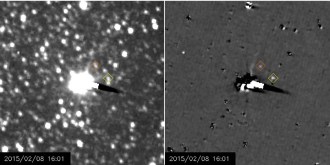 Planetary Science
Planetary ScienceNew Horizons spies two of Pluto’s moons
Nix and Hydra come into view on the 85th anniversary of Pluto’s discovery.
-
 Cosmology
CosmologyThe past according to Planck: Cosmologists got a lot right
New results from the Planck satellite largely support cosmologists’ theories, but leave the door open for new discoveries.
By Andrew Grant -
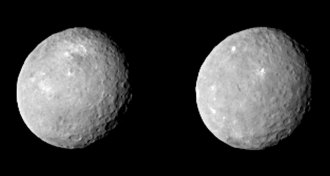 Planetary Science
Planetary ScienceDwarf planet Ceres comes into view
New images from the Dawn spacecraft reveal a landscape of craters and mysterious bright patches on the dwarf planet Ceres.
-
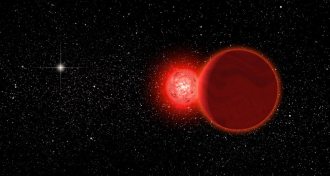 Astronomy
AstronomyPair of stars buzzed the solar system 70,000 years ago
Astronomers discover a binary system that made the closest known flyby of the sun.
-
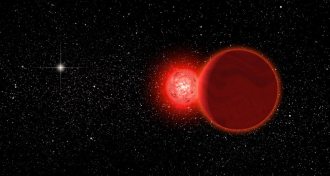 Astronomy
AstronomyClosest star approach to the sun
Astronomers discover a binary system that made the closest known flyby of the sun.
-
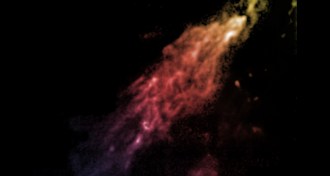 Astronomy
AstronomyGiant hydrogen cloud headed for Milky Way
A high-speed hydrogen cloud on a crash course with the Milky Way appears to be an exotic interloper, preliminary data suggest.
-
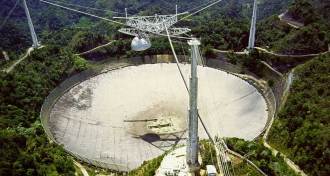 Astronomy
AstronomyTop 10 messages to send to E.T.
Fears that sending signals to alien civilizations would provoke an invasion shouldn't prevent transmitting important messages.
-
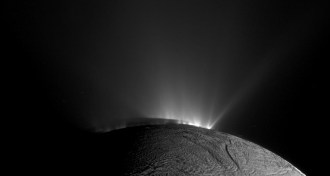 Planetary Science
Planetary ScienceEnceladus ocean may resemble Antarctic lake
The pH of a subsurface sea on a moon of Saturn resembles an ice-covered lake in Antarctica where microbial mats thrive.
-
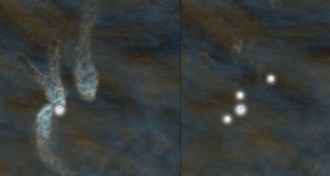 Astronomy
AstronomyStellar nursery gives birth to quadruplets
Four young stars, still in their cocoons, show that binary and other multiple star systems form together.
-
 Astronomy
AstronomyFinding joy and inspiration in the pursuit of knowledge
Editor in Chief Eva Emerson ruminates on the power of knowledge, and the ways scientists are refining how we think about the aging human brain, far away comets and even the speed of light.
By Eva Emerson -
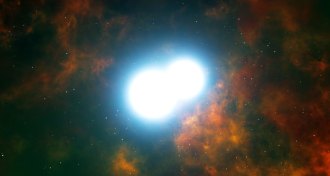 Astronomy
AstronomyWhite dwarf pair will trigger a supernova — in 700 million years
Astronomers found two white dwarfs with enough mass to explode as a supernova.
-
 Astronomy
AstronomyFirst stars born later than thought
New results from the Planck mission indicate that the first stars began to shine 550 million years after the Big Bang.